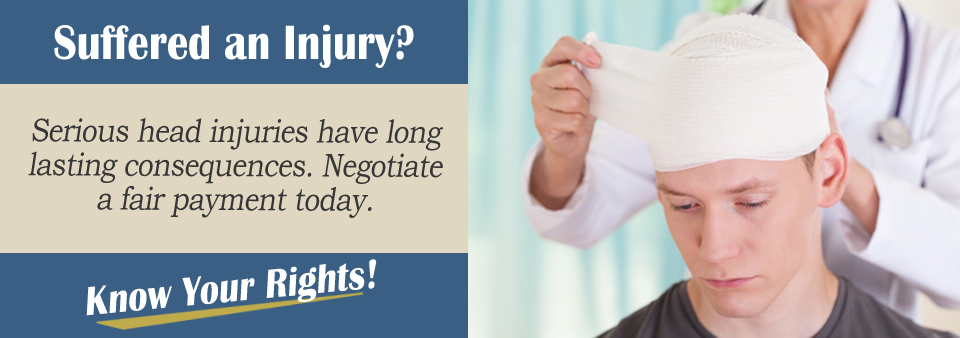A traumatic brain injury is any serious injury to the function of the brain after an accident in which the head or skull has suffered a significant shock or impact. Traumatic brain injuries can be hard to diagnose and treat, even with modern neurosurgery. TBI injuries may lead to long lasting impairment of any of the brain’s functions. This could include impairment of vision, hearing, sense of touch, loss of coordination or use of any of the limbs and/or impact on any of the body’s internal organs.
Recognizing the Signs and Symptoms of TBI
TBI symptoms may manifest themselves immediately or at some delayed time well after the accident. Victims of car accidents who have suffered blows to their head should monitor their senses and actions even if they don’t think that they suffered a brain injury. The accident victim should preferably see a doctor or other medical professional to be assessed for potential traumatic brain injury.
Common signs of a traumatic brain injury:
- Physical symptoms (headache, nausea, dizziness)
- Cognitive symptoms (memory loss, confusion, difficulty concentrating)

Seeking Immediate Medical Attention
Prompt medical evaluation of your injuries by a doctor or other medical professional should be carried out as soon as possible, even if the accident victim thinks that there is nothing seriously wrong with them. The purpose of the evaluation is to:
- rule out other injuries and potential complications;
- obtain an accurate diagnosis and treatment plan;
- provide evidence that could be valuable later on in the event of a compensation claim.
Medical professionals involved in TBI diagnosis and treatment include the following:
- emergency room physicians;
- neurologists and neurosurgeons.
Typical diagnostic tests commonly used for TBI assessment include the following:
- CT scans and MRIs;
- Neuropsychological testing.
Documenting the Accident and Injury
Any car accident in which a serious injury has occurred, such as an injury to the head or brain, must be reported to the police. One of the most important reasons for reporting an accident and injury is that this can provide valuable evidence of fault in the event there is an insurance claim or other legal action which could be taken by the injured victim. Police reporting is generally regarded as gathering evidence related to the accident and TBI.
What you can do at the scene of the accident depends largely on the immediate severity of the accident. If possible, there are definitely some things you can do proactively which could provide valuable evidence that can be used later in the event of a compensation claim. This includes such things as:
- taking photos of the accident scene and damage to vehicles involved
- asking eye witnesses to record what they saw or agreeing to provide statements later if asked to do so;
- noting whether there were security or traffic surveillance cameras in the vicinity which could be accessed later to potentially provide video evidence of the accident.
Keeping a Personal Injury Journal
It can be useful in the event of a compensation claim to maintain a regular daily record of symptoms, treatment and any progress. The recording should note the effects of the TBI on daily life and activities, including the effect on the ability to keep working or earn a living.
Consulting with a Personal Injury Attorney
TBIs can mean the victim has long lasting, possibly permanent impairment. Ongoing medical treatment and loss of wages or other income can mean considerable financial hardship. When the accident was caused by another driver, there is the potential for compensation to cover the cost of the injury.
A personal injury claim depends on clear evidence of negligence on the part of the at-fault driver and an understanding of the state’s car accident insurance laws, which may limit compensation. It is advisable to use a personal injury attorney to help with legal advice and representation when pursuing compensation after a TBI car accident injury. Fill out the Free Case Evaluation to get connected with an independent personal injury lawyer who subscribes to the website and may be able to help with your case.